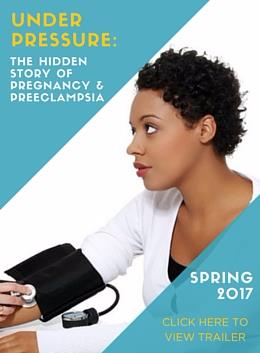By Korin Miller
Its Sex Ed 101: Women have a uterus, two fallopian tubes, and two ovaries.
But according to experts, some women have a reproductive system that’s actually half of that. It’s a condition that’s known as “unicornuate uterus” or “unicorn uterus.” A woman with a unicorn uterus essentially has only one side of her uterus and its associated fallopian tube and ovary, creating a banana- or unicorn-like shape.
And, here’s the crazy part: You can have it and not even know.
“A patient can have totally normal Pap tests, regular pelvic exams, and a completely normal sex life and secretly there would be this silent problem that she never knew existed,” says reproductive specialist E. Scott Sills, M.D., Ph.D., medical director at the Center for Advanced Genetics.
Before you panic, know this: Unicorn uterus is somewhat rare (experts estimate that one out of every 4,000 women has it), but it occurs often enough that every doctor we spoke with has seen several cases of it.
How does it happen in the first place? Women are born with the condition, and it happens during the embryonic period when the uterus is being formed, says Kecia Gaither, M.D., maternal fetal medicine specialist and director of perinatal outreach at New York City’s Montefiore Medical Center and Albert Einstein College of Medicine.
The uterus is formed by the fusion of two structures called Mullerian ducts, she explains. If one doesn’t develop, then the other will develop normally, producing a uterus with one ovary, tube, cervix, and vagina.
Unicorn uterus is largely asymptomatic, and that’s why most women don’t know that they have it, says Sills. However, many women learn that they have the condition after experiencing a kidney problem, which is often linked to unicorn uterus, or have frequent miscarriages, or trouble conceiving. A pelvic sonogram or MRI will typically spot the issue.
While it’s possible to get pregnant and carry a baby to term with unicorn uterus, Sills says it can be more complicated because the uterus is smaller than normal. “A lot of patients with unicorn uterus end up having a C-section or pre-term deliveries because the real estate is crowded,” he says.
However, he stresses that it’s possible for women with this condition to have a healthy pregnancy—it’s just important for her doctors to know about her condition in advance so they can carefully monitor her pregnancy beginning at 28 weeks.
There’s unfortunately no cure for unicorn uterus, but Sills says that’s not a bad thing since “it doesn’t necessarily have to be fixed.”
If nothing else, it makes for interesting cocktail-party conversation.






